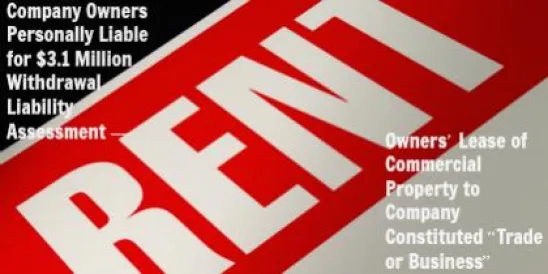Not all class action allegations are created equal. Certain types of claims are more likely to be amenable to class treatment – generally those involving uniform policies that result in uniform injuries; other claims seem destined for individualized treatment – generally those involving a variety of unpredictable factors that determine liability as to each putative class member. And some class claims, due to their very nature, are so individualized that the class allegations should be dismissed on the pleadings. Indeed, the California court of appeal recently reminded us that some class allegations deserve dismissal on demurrer. The case is Schermer v. Tatum, D067807 (Cal. App. 4th Dis. Mar. 18, 2016).
In Schermer, the California court of appeal affirmed the trial court’s dismissal of the class action allegations in a complaint. Following a line of cases, the court reiterated that “[a] trial court may sustain a demurrer to class action allegations” where “there is no reasonable possibility that the requirements for class certification will be satisfied.” Id. at 14 (internal citations and quotations omitted). Early dismissal of meritless class allegations saves on “the expense of an evidentiary hearing [and] class-related discovery.” Id.
In Schermer, tenants at a mobile home park alleged that the owners were enforcing certain lease provisions unconscionably, primarily by charging certain fees and raising rents in a manner that broke the law. Plaintiffs brought their claims on behalf of a putative class that included tenants at 18 different mobile home parks spread across California. Whether the owners were liable turned on, among other things, (1) whether the leases were fairly negotiated or if tenants were coerced into signing – a classic who said what and when to whom; and (2) whether the owners raised rents above a fair market value – which depended on the rent charged, the location and size of the mobile home plot, and the location of the mobile home park in California. The court held that, based on the plaintiffs’ theory of liability, there was no reasonable possibility that the requirements for class certification could be satisfied. The court stated:
In light of the fact the proposed class included 18 mobile home parks located throughout California and involved the negotiation of individual lease agreements by different defendants (and/or their agents) in each park, and in light of the fact the causes of action at issue involved the conduct of defendants with respect to the negotiation, execution, and/or enforcement of each such lease, we conclude there is no reasonable possibility that plaintiffs could amend their class action complaint yet again to assert causes of action that allegedly are based only on “common leasing practices” of defendants throughout all 18 parks.
Id. at 26 (emphasis in original). As a result, the court of appeal affirmed the trial court’s ruling sustaining a demurrer to the class allegations.
Class actions are an ever increasing reality of conducting business in California. For companies faced with class action claims that are unreasonable on their face, they should consider attacking the class allegations by way of demurrer. If successful, they will have avoided the expense of class discovery and litigation; if not, they may still have come out ahead – having raised early that the class allegations lie on shaky ground, trial courts may be more likely to limit discovery and focus the case on those issues likely to be dispositive of the class certification issue.



 />i
/>i

